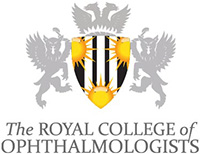Entering OST
What do I need to enter OST?
Essential Attributes
Ophthalmology is a surgical specialty. If you wish to enter ophthalmology you will need to have an aptitude for microsurgical skills. You should therefore already have good hand-eye coordination. Good binocular vision and stereopsis is considered to be an advantage for all ophthalmologists in surgical procedures, clinical assessment and in the interpretation of some investigations. You are strongly advised to seek an assessment from an optometrist or orthoptist who will be able to measure your visual acuity and stereovision.
- You will have completed 2 years of foundation training, or equivalent, which need not have included a period of time in ophthalmology. You will be expected to show that you are committed to a career in ophthalmology by taking advantage of any opportunities that arise during foundation training. It is expected that you will have achieved as follows during your foundation training:
- You will be able to perform a general medical examination, which includes examination of the nervous system, neck, skin and joints (CA11, CA13, CA14, CA15).
- You will also be able to perform a basic developmental assessment of a child (CA12).
- You will be able to order and interpret biochemistry and haematology investigations, bone scan reports and urinalysis (PI8, PI9, PI15, PI16).
- You will be able to recognise when a patient is ill and provide emergency treatment, including basic life support until expert helps arrives (PM8, PM9).
- You will have a good knowledge of general medicine and surgery, especially in those areas of direct relevance to ophthalmology (BCS). You will have adopted appropriate professional behaviours that include attitudes, ethics and responsibilities as a doctor (AER). You will understand and follow the guidance for professional practice described in the GMC documents, Duties of a Doctor and Good Medical Practice (HS). You will take responsibility for the implications of your own health on your professional practice (CPD7).
If you have not undertaken foundation training, you must be able to show that you have completed an equivalent training and have evidence that you have achieved the professional competences described above.
Assessments
In addition to a certificate of satisfactory completion of foundation training, you will be assessed in one or more of the following areas:
- Binocular vision and stereopsis
- Communication skills
- Decision making skills
- Critical appraisal skills
- Basic surgical skills
- Commitment to ophthalmology
- Good medical practice
At what rate would a typical trainee achieve the learning outcomes?
 |
For further details see the Target Year of Achievement.
